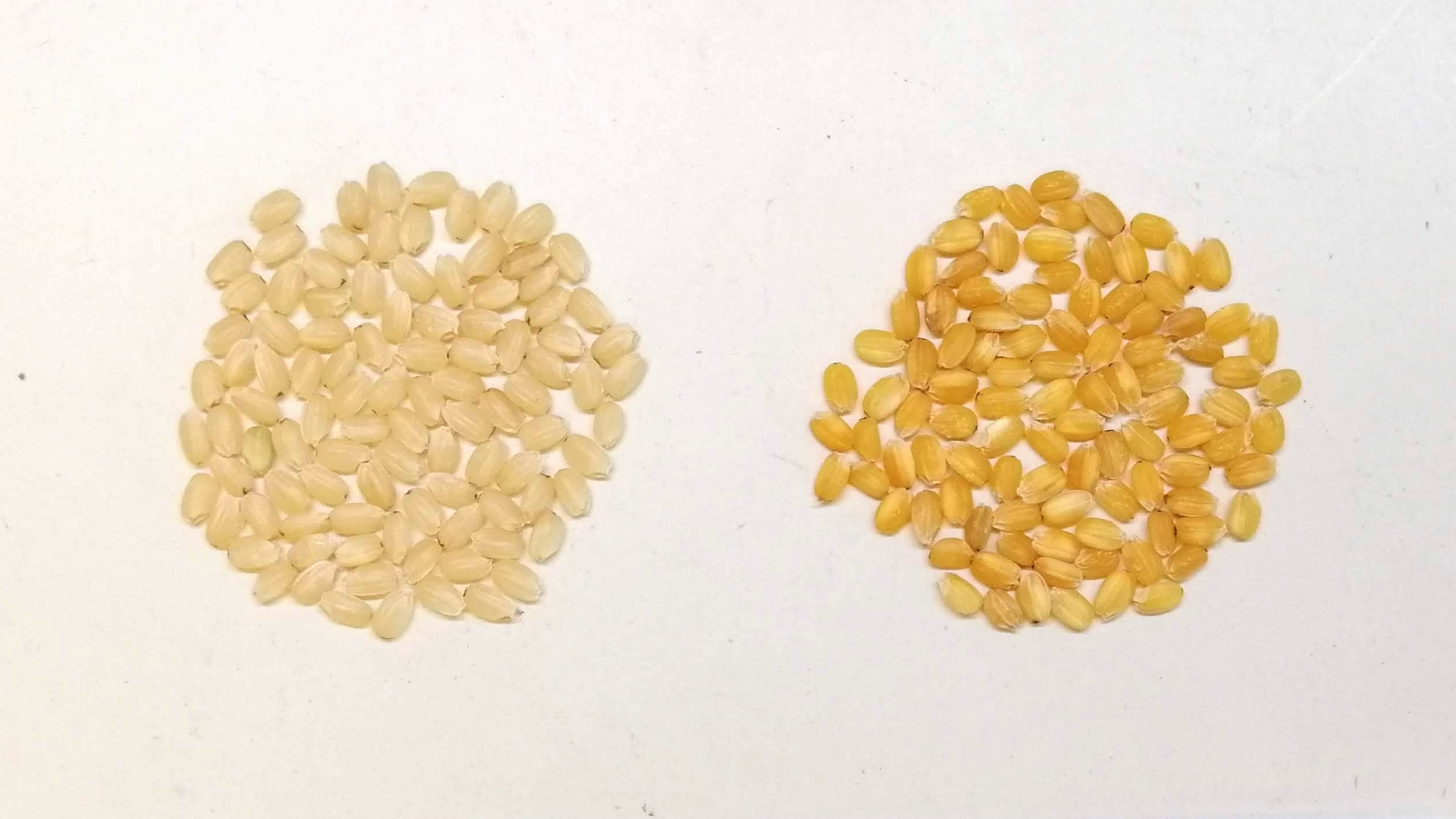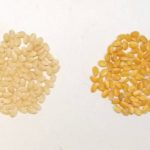Scientists at UC Davis and collaborators at the Joint BioEnergy Institute (JBEI) have used CRISPR technology to genetically engineer rice with high levels of beta-carotene, the precursor of vitamin A. The technique they used provides a promising strategy for genetically improving rice and other crops. The study in Nature Communications was published by a research team led by Pam Ronald, a professor in the Genome Center and the Department of Plant Pathology at UC Davis and Scientific Lead of Plant Pathology at JBEI.
Rice is a staple food crop for more than half the world’s population. Golden Rice, a genetically engineered rice with high levels of beta-carotene, has been approved for consumption in more than five countries, including the Philippines, where vitamin A deficiency in children is widespread. Because of the social impact of the Golden Rice, the researchers chose the high beta-carotene trait as an example.
Read the full story at jbei.org.



